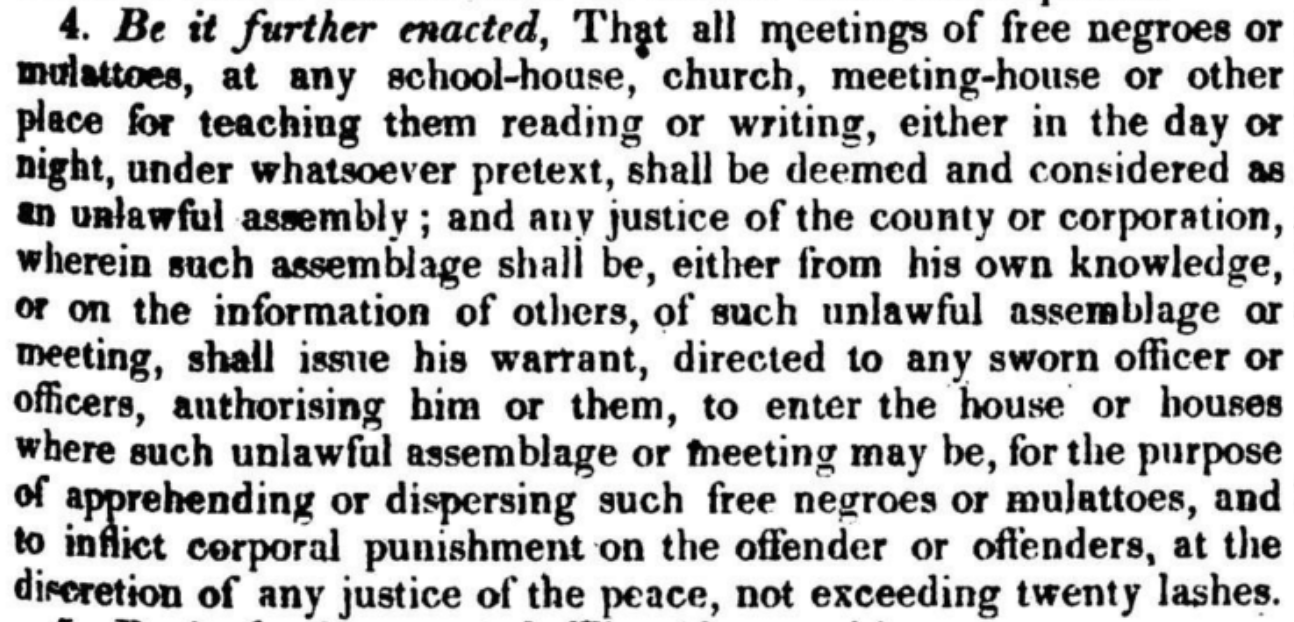On this dayOct 14, 1834
Four People Charged for Teaching Black People to Read in Wheeling, West Virginia
Fotosearch/Getty Images
On October 14, 1834, authorities charged four white people with unlawful assembly for convening a literacy class for Black residents in Wheeling, a city in present-day West Virginia that was then a part of Virginia.
That day, a group of free Black people met at a Wheeling schoolhouse to attend a literacy class taught by Ellen Richie, John Templeton, John Moore, and Stanley Cuthbert. When authorities learned about the gathering, they declared that the literacy class was “against the peace and dignity of the Commonwealth” and charged the four instructors under an anti-literacy law passed three years earlier by Virginia’s all-white legislature.
That 1831 law, which led to at least a dozen prosecutions in Wheeling alone, declared that “all meetings of free negroes or mulattos, at any school-house, church, meeting house or other place for teaching them reading or writing, either in the day or night, under whatsoever pretext, shall be deemed and considered as an unlawful assembly.” The law authorized officers to enter the meeting space, break up the meeting, and subject any Black person found in attendance to up to 20 lashes. White people convicted under the law faced a fine of up to $50—the equivalent of roughly $1,800 today—and could be imprisoned for up to two months.

The law was part of a wave of anti-literacy laws passed throughout the South targeting both free and enslaved Black people as well as those assisting them. Similar legislation was passed in Georgia (1829), Louisiana (1830), North Carolina (1830), and South Carolina (1834).
Yet, despite the criminalization of Black education—and the harsh legal and extrajudicial punishments inflicted on those accused of violating literacy laws—many Black people courageously found ways to circumvent these laws. Historians estimate that hundreds of thousands of Black people acquired literacy during the era of enslavement.
About EJI
The Equal Justice Initiative works to end mass incarceration, excessive punishment, and racial inequality.
About this website
Until we confront our history of racial injustice and its legacy, we cannot overcome the racial bias that exists today.
 Learn more
Learn more